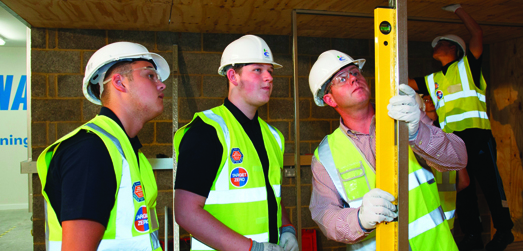A new report from the Construction Products Association (CPA) says that manufacturers and distributors of construction products run thousands of training programmes for the contractors who install their products. and that this training should be put on a formal footing with nationally recognised qualifications.
‘Skills Report 2015’ – produced with support from the Construction Industry Training Board (CITB) – is the third in a series of projects that the CPA is contributing to understand skills and materials constraints facing the industry. It maps the large number of training activities which Association members currently run, particularly for ‘product-users’, and recommends a new process to align that training to recognised qualifications.
The report also provides detailed information for member companies regarding products, Standard Occupational Classification codes, products and materials manufacturing occupations and product user occupations. This information can be used to guide companies to the nationally recognised occupations which may currently exist in their sectors, and help them grow their relationship with the relevant Sector Skills Council.
Dr Diana Montgomery, Chief Executive of the Construction Products Association and Chair of the Infrastructure UK Supply Chain Capacity and Skills Group, said: “The construction products manufacturing and distribution sectors organise training at their facilities across the UK, particularly to skill the builders and tradespeople in ‘user training’ to ensure that products are correctly installed onsite. This report shows, for example, that the CPA’s largest company members train on average 21,108 people through 3,523 courses per year.
“Our research suggests, however, that the majority of this training is informal and does not lead to a nationally recognised qualification. With the help of the CITB and our members, we believe we can develop a new framework to provide more structured, formal programmes from the existing informal training programmes.
“By establishing a recognised training process, manufacturers would not only have greater confidence that their materials and products are being installed correctly by qualified individuals, but the builders and tradespeople would be better trained, with more flexible and professional credentials; all of which should in turn improve productivity.”
Adrian Belton, Chief Executive of the CITB, said: “This report finds that a lack of skilled staff, outdated qualifications, an ageing workforce, insufficient high-calibre candidates coming into construction, and difficulty accessing skills funding are all holding the industry back. We have to create more relevant qualifications, a greater number of apprenticeships and better continued professional development of the existing workforce to tackle these issues. Together with the CPA, we will take forward the report’s recommendations to link training to qualifications, signpost available skills funding and increase collaboration with information and guidance to support their members’ skills needs.”


